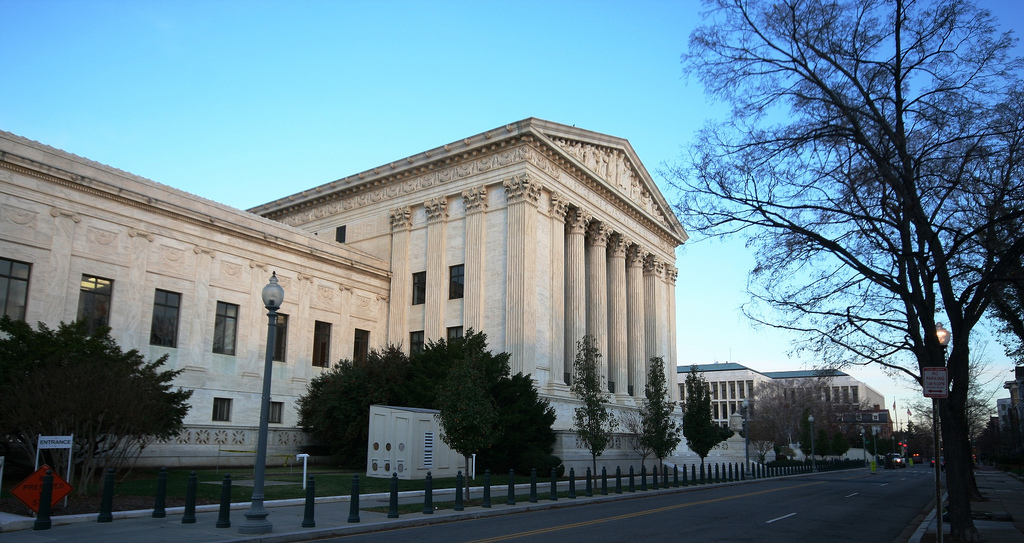The LGBT win in SmithKline Beecham Corp. v. Abbott Laboratories is now closer to providing a strong win for LGBT rights. The case dealt with a man who was excluded from being a juror in because he is gay. The three-judge panel of the 9th Circuit Court of Appeals used “heightened scrutiny” in its ruling of unconstitutional discrimination. The only appeal that Abbott made was the privacy issues of questioning potential jurors about their sexual identities. It is assumed that the full court will vote on whether to reconsider the case. The effect of their decision will influence a pending Nevada case on the constitutionality of a state ban on marriage equality.
The panel has already decided that there must be “heightened scrutiny” in LGBT rights cases. If the full court denies the review or if they accept it and uphold the panel, the “heightened scrutiny” will continue to be required. Opponents to LGBT rights have much more difficulty with this level of scrutiny than with the “rational basis” test that has been used by the 9th Circuit, until now, to judge bias against LGBT people. At this time, only the 2nd Circuit of Court of Appeals uses “heightened scrutiny.” The series of rulings from federal district court judges have all used the “rational basis” test, establishing that states can’t find enough justification to even meet the least-demanding standard.
This move to “heightened scrutiny” would affect not only marriage equality but also LGBT rights in other areas such as employment. Meanwhile, the same-sex marriage mill keeps grinding.
 Oklahoma:
Oklahoma:
After a hearing on marriage inequality in Utah on April, a three-judge panel from the 10th Circuit Court of Appeals heard arguments regarding Oklahoma’s ban on same-sex marriage. Jerome Holmes, considered the swing vote on the panel, asked Jim Campbell, the lawyer defending Oklahoma’s ban: “The state cannot define marriage in any way that would trample constitutional rights, right?” Campbell told the court that it must defer to the democratic process if the state has a rational reason to choose who gets to marry. He said, “The natural, procreative potential of opposite-sex couples distinguishes that group from same-sex couples.”
Oregon:
The latest state to dive into the pool of marriage equality via federal courts, the case being heard on April 23 is unlike the last five federal judges who struck down laws preventing same-sex marriage: the judge is gay. Michael McShane is one of only nine openly gay members of the federal judiciary. The National Organization For Marriage has said it will file a motion claiming standing. NOM’s chairman, John Eastman said, “The question is not his sexual orientation, but whether he is situated identically to the plaintiffs and will benefit from the exact relief he provides to them.” Opponents failed in California when they made the same argument about U.S. District Judge Vaughn Walker.
Two other issues set the Oregon situation apart from other states. There is no opposition for the hearing; only lawyers asking that the 2004 constitutional amendment be struck down will be in court. Also the state marriage equality group has more than sufficient signatures to put the issue on the fall ballot if McShane doesn’t decide by July 1.
Ohio:
A measure has been approved in Ohio for that state’s residents to begin gathering signature to attempt to place an ballot initiative on this November’s ballot. The goal would be overturning Ohio’s ban on same sex marriage.
Georgia:
The first same sex marriage lawsuit in the state has been filed in Georgia after the Fulton County Probate Court refused to grant a marriage license to Shane Thomas and Michael Bishop. Lambda Legal is spearheading the case.
Texas:
A recent survey by Texas Tech shows for the first time that more Texans approve of same sex marriage than disapprove of it. The poll found 48 percent supporting same sex marriage with 47 percent opposed.
Republicans:
Young Conservatives for the Freedom to Marry has launched a $1-million campaign to remove anti-LGBT language from the GOP platform and add pro-marriage equality positions. GoProud and Log Cabin Republicans are supportive but not optimistic about the chances of these changes. Thus far, both Nevada and Oregon GOP removed anti-marriage equality from their platforms, the latter state after a splinter with the far-right wing.
